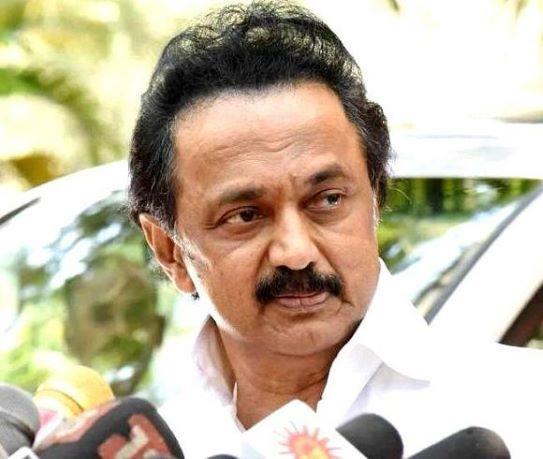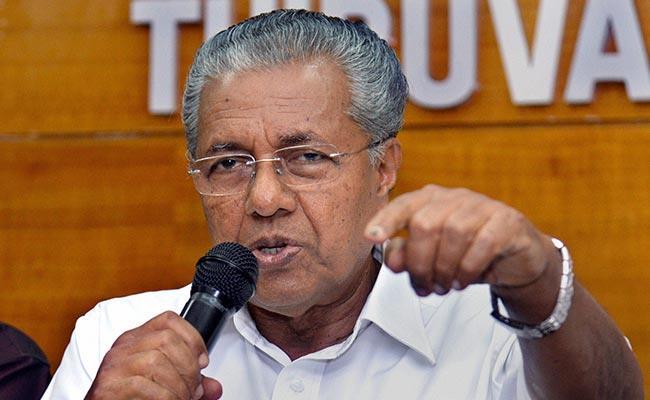(MENAFN- NewsIn.Asia)
By P.K.Balachandran/Daily Mirror
The state-level elections held in India recently (results of which were declared on Sunday) were by no means local affairs. Held in the four States of West Bengal, Tamil Nadu, Kerala and Assam, and in the Union Territory of Puduchery (previously Pondicherry), the polls had immense national importance.
National issues and national conditions impinged on them and the outcomes indicated the possibility of significant changes in the national political landscape.
The hold and prospects of 'Hindutwa' (which is the political use of the Hindu religious label) propagated by the Bharatiya Janata Party (BJP), are now in serious question. The polls also indicated a revival of alternative secular ideologies and the pull of regionalism.
On a different plane, the BJP's ham-handed handling of the pandemic emergency from its perch in the Central government in New Delhi, had its bearing on the mood of the voters in the States.
Drubbing in West Bengal
The West Bengal elections stood out for the Herculean effort of the BJP to turn secular West Bengal into a Hindutwa bastion. The party strained every nerve, spent billions, and used big guns like Prime Minister Narendra Modi repeatedly, to capture power. But the Hindutwa Juggernaut proved to be no match to the secularist and Bengali nationalistic campaign of the ruling regional party , the Trinamool Congress (TMC) led by the fiery Mamata Banerjee. The TMC successfully portrayed the BJP as a non-Bengali party and its communal ideology as alien to the progressive Bengali ethos.

M.K.Stalin
But what cannot be lost sight of is that Hindutwa has gained a foothold in West Bengal. The BJP has emerged as the number two party sweeping aside the Communists and the Congress. But if the Hindu communalists are not put on the leash, Islamic communalism in neighboring Bangladesh, presently kept on the leash by Sheikh Hasina's Awami League, might break free again to cause friction in India-Bangladesh relations.
The second national issue which played a major role in the West Bengal elections was the raging COVID-19 pandemic. Despite the devastation that the pandemic was causing in West Bengal and many parts of North India, the BJP was organizing huge public rallies, forcing other parties to follow suit. These rallies, allegedly held with the complicity of the Election Commission, drew flak all over the world.
Revival of Secularism in Tamil Nadu
As in West Bengal, the BJP had made a bold bid to enter another bastion of secularism and regionalism – Tamil Nadu. But given the long tenure of secular cum regional parties in government, it was assumed that the Tamil voter would want a change, a drastic change. The BJP was hoping to cash in on the fact that both the ruling All India Anna Dravida Munnetra Kazhagam (AIADMK) and the opposition Dravida Munnetra Kazhagam (DMK) were for the first time fighting without charismatic leaders (J.Jayalalithaa of the AIADMK and M.Karunanidhi of the DMK) in a state heavily given to hero worship.
The BJP and the AIADMK entered into a marriage of convenience. But the alliance sank. The Tamil voter wanted change no doubt, but preferred a tried, tested, secular and regionalist DMK to an alien BJP. For the AIADMK, alliance with the BJP proved to be the Achilles Heel. The DMK swept the polls putting out of action all small players like Makkal Needhi Maiam of cinema star Kamal Haasan and pro-LTTE Naam Tamilar Katchi led by Seeman. The Congress, being an ally of the DMK performed well .
Puduchery
In the tiny Union Territory of Puduchery the BJP was in alliance with a regional party, AINRC headed by a Congress rebel N.Rangaswamy. The coalition led by AINRC won giving the BJP entry into Puduchery's political landscape.
Kerala
This time, Kerala saw the breaking of a unique State tradition. For the first time in decades, a ruling party got a second consecutive term. The Left Democratic Front (LDF) led by the Communist Party of India (Marxist) retained power and the Congress-led United Democratic Front (UDF) which was expecting to come to power automatically, was mauled.
The BJP, which was hoping to get a foothold in the State, as an alternative new force, was nowhere in the picture. The State's secularist tradition continued to stand in its way. The BJP-led National Democratic Alliance drew a blank, despite considerable money and manpower it had marshalled for the sustained and visibly high profile campaign, including election rallies addressed by its top leaders Prime Minister Narendra Modi and Home Minister Amit Shah. The UDF, led by the Congress, failed, though its leader, Rahul Gandhi (who had been elected to the Indian parliament from Kerala in the 2019 elections) campaigned in the State three times.

Pinarayi Vijayan
One of the reasons for the LDF's triumphs was the way it fought the COVID pandemic in the State in the first phase. Its lady Health Minister K.K.Shailaja had set an example to other Health Ministers and became a celebrity with flattering coverage in the international media.
Assam to BJPs rescue
The only silver lining for the BJP in the otherwise dark cloud was its retaining power in the North-Eastern State of Assam. The reason is that the BJP in Assam is seen as a party which upholds cause of the Assamese. The national Hindutwa party is seen as a champion of Assamese interests in Assam.
The main issue in Assam has been the alleged influx of millions of Muslim Bangladeshis. The alleged illegal migration had been tacitly allowed by the Congress when it was in power in the State in the 1950s, 60s and 70s. The BJP has exploited this issue in the last elections and even conducted a State-wide census called the National Register of Citizens (NRC). But the NRC's implementation remains suspended partly because it revealed that lakhs Hindus too were in the list of illegals. However, the issue of illegal migration persists and the BJP exploits it to the hilt.
All India Impact
The electoral defeat in West Bengal and to an extent in Tamil Nadu combined with the failure to prevent large scale deaths in the pandemic, have dented the image of the BJP, Prime Minister Modi and Home Minister Amit Shah. But whether the denting is deep or not and whether it can be repaired or not, would depend on how they perform from now till the next elections in 2024.
A key takeaway for the BJP is that Hindutwa is not always and everywhere an Open Sesame in electoral politics. It could be a dud cheque in some places and a trump card in others, depending on the local culture and local pre-occupations. More importantly, communal mobilization has its uses as well as limits depending on the mood of the voters.
But the most important lesson to be learnt is that, at the end of the day, the political bottom line is governance. Ultimately everything boils down to governance, whether it has been good or bad. The handling of the COVID second wave is a matter of governance and its ham-handed handling by the BJP at the Center has extracted a heavy price from it.
As regards the Congress, the main opposition party at the Center, the results show that it is still to get its act together though it has ideological distinctness and consistency. Its organizing ability at the party level is dismal. It has starkly displayed the absence of a strong, active, committed and inspiring leader. It is still to find a match for BJP's Narendra Modi or the TMC's Mamata Banerjee.
END
Indian State elections M.K.Stalin Mamata Banerjee Narendra Modi Pinarayi Vijayan
MENAFN04052021000191011043ID1102023272
Legal Disclaimer:
MENAFN provides the information “as is” without warranty of any kind. We do not accept any responsibility or liability for the accuracy, content, images, videos, licenses, completeness, legality, or reliability of the information contained in this article. If you have any complaints or copyright issues related to this article, kindly contact the provider above.